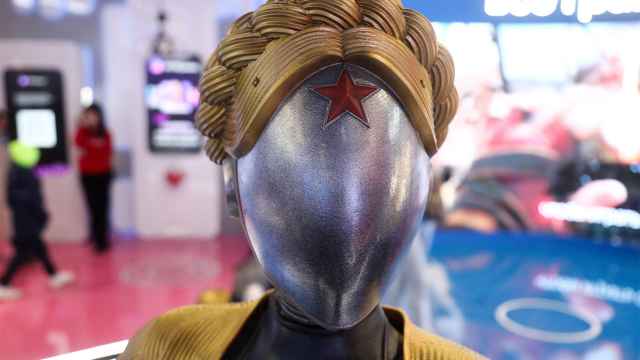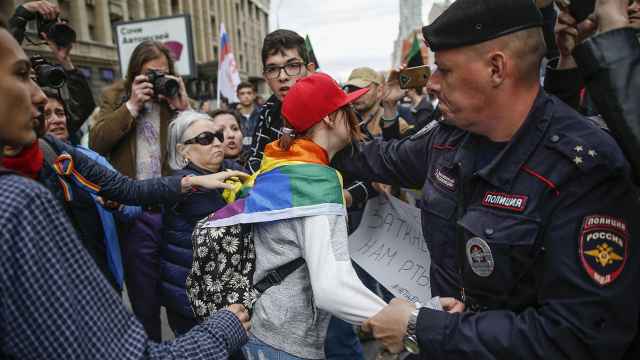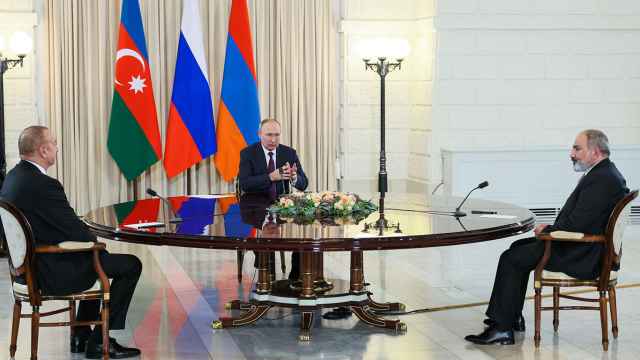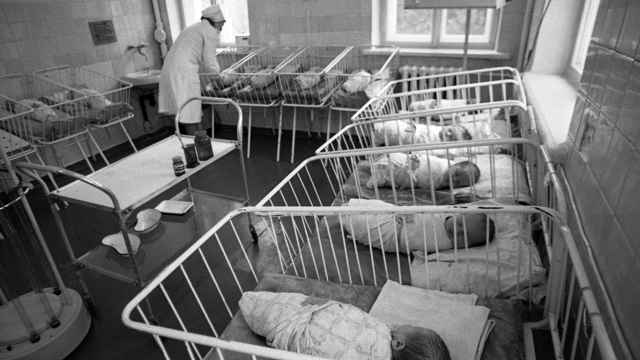Since the presidential election, Vladimir Putin has embraced a divisive political strategy that risks blowing up in his face.
In a democracy, the strategy amounts to trusted pandering to your political base, keeping it mobilized for an artificial conflict with your political opponents. It could be a mobilization tool before the election, but it is ineffective in democratic governance, which requires outreach to political foes to actually accomplish anything.
In the Russian context, Putin's strategy is to pursue "countermodernization," to borrow political analyst Kirill Rogov's term — that is, a deliberate dismantling of Prime Minister Dmitry Medvedev's push, however timid, toward more political freedom, democracy and accountability in government. In other words, if modernization empowers your foes, you simply reverse it.
Putin is now using a mixture of Soviet-style selective repression, unabashed glorification of the Soviet past and Orthodox religious fundamentalism to whip up hysteria and pit pro-Putin, blue-collar voters in the regions against urban voters in Moscow and other big cities who view Putin as an impediment to Russia's progress.
This polarizing strategy has two unintended consequences: It empowers lunatic nationalists and religious marginals who have little respect for Putin and would gladly see him go. It also rattles the nation's elites, who wince at the destructive effects of the cultural and class warfare that Putin has unleashed.
One of the secrets to Putin's political durability was his knack for being all things to all people, forging odd coalitions of pro-Western liberals and anti-Western nationalists. But now that is gone.
Equally important has been his ability to avoid splits within the elites who could share the benefits of what New Economic School professor Sam Greene calls "Russia's networked authoritarianism." The system is immune to regime failure as long as the benefits of staying within the system outweigh its costs. It also requires Putin's sane arbitrage to keep balance.
The switch to scorched-earth political tactics and the country's inexorable slide toward Orwellian perversity changes this calculus toward diminishing returns as the elites rush to fulfill Putin's latest order to transfer their foreign-parked assets to Russia within a year. Perhaps more political repression and Western sanctions are imminent. The paranoia-struck elites may begin to split, upending the need for the arbiter.
It's a dicey strategy. All bets are off.
Vladimir Frolov is president ofLEFF Group, agovernment relations andPR company.
Correction: An earlier version of this story misspelled New Economic School professor Sam Greene's last name as Green.
Related articles:
A Message from The Moscow Times:
Dear readers,
We are facing unprecedented challenges. Russia's Prosecutor General's Office has designated The Moscow Times as an "undesirable" organization, criminalizing our work and putting our staff at risk of prosecution. This follows our earlier unjust labeling as a "foreign agent."
These actions are direct attempts to silence independent journalism in Russia. The authorities claim our work "discredits the decisions of the Russian leadership." We see things differently: we strive to provide accurate, unbiased reporting on Russia.
We, the journalists of The Moscow Times, refuse to be silenced. But to continue our work, we need your help.
Your support, no matter how small, makes a world of difference. If you can, please support us monthly starting from just $2. It's quick to set up, and every contribution makes a significant impact.
By supporting The Moscow Times, you're defending open, independent journalism in the face of repression. Thank you for standing with us.
Remind me later.







